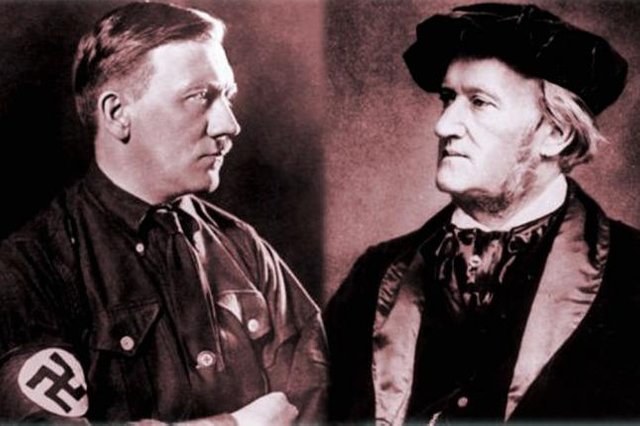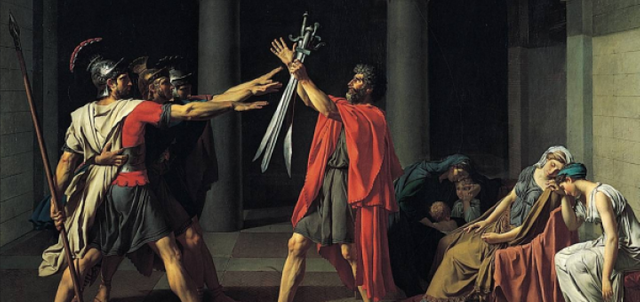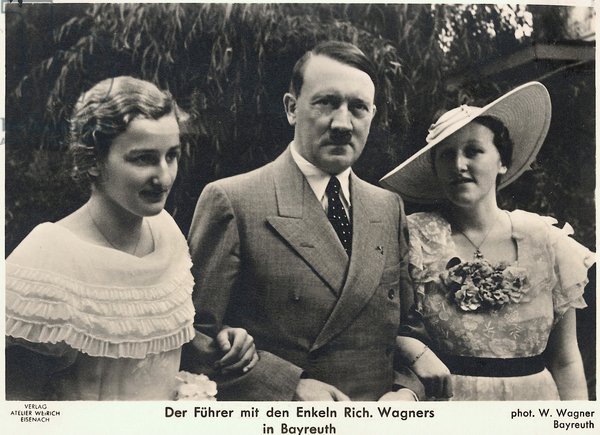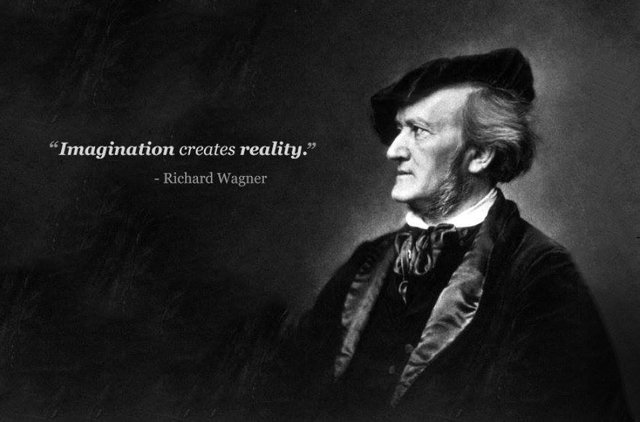The Instigator of Evil: Richard Wagner's Influence on Hitler
Art has nothing in common with moral values. Moreover, it may serve to program people’s minds. Music is the form of art that is capable of exerting a profound influence on listeners. Richard Wagner belonged to the cohort of composers whose works were much more that just a set of notes which created a harmonic sound. It contained a spirit of ancient times, a sophisticated symbolism, and a call to action. Listening to Richard Wagner’s music appears to have a hypnotic effect on some individuals.
Adolf Hitler was one of such listeners who did not simply hear a piece of music but a call. Wagner’s work and his worldview have profoundly influenced the dictator in a symbolical, spiritual, and ideological way. Much of the composer’s literary and philosophical legacy made a strong impact on the Fuhrer’s ideas about a great fate of the German Nation, the nation that was defeated in The First World War and humiliated by the Treaty of Versailles, to rise once again from the ashes and to fulfill its destiny to rule the world. When the Nazis rose to power, the special bond between the opera composer and the most notorious ruler of the 20th century grew even stronger. No other musician had such a prodigious influence on the establishment of the political regime and its leader, and no other composer was so strongly associated with the Third Reich than Richard Wagner.

The History of Relationships Between Wagner and Hitler
The answer to the question, why Germans, and Hitler in particular, have felt such an extraordinary admiration for the works of Richard Wagner is rather obvious. Wagner was undoubtedly a great composer, even with the spark of genius, and he was a Germanic composer. It should be clarified that he was not the German composer by nationality, but rather an artist who depicted the soul of the Germanic ethos. He reformed the national opera and turned it from a mere entertaining show to a musical drama by synthesizing the music and the dramatic action. There could be no doubt that his compositions embodied a great layer of German mentality, history, and the way the German nation wanted to position itself in the world. It should be noted that Wagner wrote all of his operas, perhaps with the exception of Rienzi, der Letzte der Tribunen, on the basis of German mythology. Higgins has noted a vivid proof of the imprint that the composer might have left on Hitler is the Nazi salutation “Heil.” He could see a similar Roman greeting in the opera Rienzi, The Last of the Tribunes and consider this gesture a perfect manner to express greatness and spirit of Nazism. These factors have constituted the soul of an entire epoch; it was the culmination of his fame as the musician, publicist, and philosopher was coincident with the emergence of a new German empire which has been breaking all ties with the experiences of the Holy Roman Empire.

Wagner was among the arch-fathers of new Germany, the one who forged the spirit and the self-consciousness of the nation. His musical and literary works have inspired a notorious Austrian corporal, who associated himself with the characters of Wagner's operas and shared many of his political and social views. It was Hitler who told,
“Whoever wants to understand National Socialist Germany must know Wagner.”
This quote alone serves as a conclusive evidence of an immense influence of Wagner's works not only on Hitler but on the process of emergence of the Third Reich. Hitler's passion for Wagner's operas formed at the very young age. In the very first chapter of Mein Kampf, the landmark book which Hitler wrote while being incarcerated after the failed Beer Hall Putsch, he depicts this exact moment when he got acquainted with composer's music for the first time,
“A precocious revolutionary in politics I was no less a precocious revolutionary in art. At that time the provincial capital of Upper Austria had a theater which, relatively speaking, was not bad. Almost everything was played there. When I was twelve years old I saw William Tell performed. That was my first experience of the theater. Some months later I attended a performance of Lohengrin [A Wagner Opera], the first opera I had ever heard. I was fascinated at once. My youthful enthusiasm for the Bayreuth Master [Wagner] knew no limits. Again and again, I was drawn to hear his operas; and to-day I consider it a great piece of luck that these modest productions in the little provincial city prepared the way and made it possible for me to appreciate the better productions later on."
After the death of his father, Hitler moved to Vienna with the intent to enter the Vienna Academy of Art, and tried to take an active part in the social and cultural life of the Austrian capital. His political preferences have formed along with his artistic tastes: as many Austrian Germans, Hitler became the adherent of the idea of Pan-Germanism, a political movement whose ultimate objective was to unite all people speaking German or a Germanic language.
The Austrian Pan-Germanists have condemned the policies of the Hapsburg dynasty and longed for the reunion with the northern neighbor, the German empire which was ruled by the House of Hohenzollern. Reasoning from this fact, it is understandable why Hitler was so fascinated by Wagner: the composer was the embodiment of everything that young wannabe painter liked in art, politics, and life in general.
Moreover, Hitler had experienced the Wagner's music in a very special way: he associated himself with the protagonists from the operas who were sacrificing themselves for the sake of the greater purpose being hemmed about by foes. August Kubizek, one of Hitler's closest friends during his life in Vienna, explains that Hitler identified himself with Wagner and the heroes from his operas. He was literally obsessed with them. The earlier love of myths and inclination for art predetermined this spiritual closeness as Hitler believed he could understood what the great musician wanted to convey, although he did not have good music education. Having learnt all Wagner’s characters, he started to think of himself as a leader. Since that time, the works of Richard Wagner became an indispensable part of Hitler's personality and the tool of Nazi propaganda and aesthetics.
One of the events that had almost a sacral significance for Adolph Hitler and the National Socialist Party was the music festival in the Bavarian town of Bayreuth. The Fuhrer was a close friend of Winifred Wagner, a daughter-in-law of the German composer and a prominent member of the Militant League for German Culture (Kampfbund fur Deutsche Kultur), who persuaded Hitler to provide the official financing of the event Regardless of the occurrences in the political life of the Reich and on the battle fronts, Hitler has always attended this festival and turned it into another propagandistic event of the national scale.

The festival served not only as the cultural venue but also a place where such important political decisions, as the initiation if the German involvement in the Spanish Civil War, took place on the regular basis. The propaganda of the Third Reich has resorted to the use of the same practices as Wagner did when staging his operas. He used the combination of a lot of stage performers and the powerful music to mesmerize the audience, and Hitler followed this example. The endless Nazi parades with their endless masses of marching army columns, enormous banners, and loud orchestras were meant to captivate the hearts of the citizens of the Reich as much as the passionate speeches of their Fuhrer.

From his pulpits, Hitler watched how the Germany was turning into one great play of Richard Wagner and felt like Siegfried, the chosen one and the true German hero. Even the rallies of the ruling National Socialistic Party, which took place in Bavaria, opened with the overture from Wagner's Rienzi. The period of the despotic rule of Nazis in Germany could be called a time when theatricality dominated over reality. Like a hero of a Wagnerian opera, Hitler rose to the pinnacles of fame and power and used his energy and persuasiveness to turn the entire German nation to the ecstatic audience.